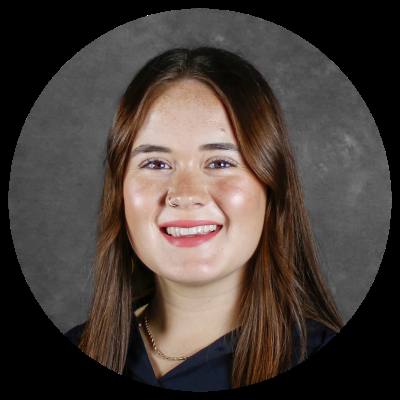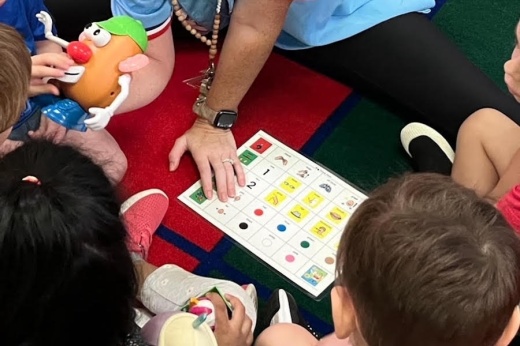In late March, district staff jointly reapplied for the grant as its two-year cycle comes to an end in the hopes of expanding upon the districts’ advancements. As the districts await notification on the upcoming grant’s status, LHISD will hold an informational night on its autism services for families on April 12.
“It's [brought] increased awareness and acceptance of our students that are neurodiverse,” LHISD Autism Specialist Wendy Stocker said about the grant.
The overview
The Innovative Services for Students with Autism grant, a federally funded grant managed by the Texas Education Agency, helps districts offer additional support to autistic students beyond what is legally required by the state, said Hattie Currier, an LISD low-incidence disabilities specialist who oversees autism grants.
Leander and Liberty Hill ISDs partnered to apply for the 2022-24 grant cycle and were jointly awarded $2.8 million, Currier said. The districts have since provided additional training to staff and improved offerings for autistic students in early childhood and age 18-plus programs, Stocker said.
The grant has been critical to both districts as their autistic student populations rapidly grow in line with state and national trends, Currier and Stocker said. The districts expect to be notified sometime in April on whether they will receive the 2024-26 grant to provide more expansive services to their autistic students over the next two school years.
The impact
Through its current grant, LISD hired an early childhood evaluation team that has expedited the process for autistic students ages 3-5 to receive services and provided additional training for early childhood teachers along with LHISD, Currier said. LHISD created social communication and reinforcement kits with games to help early childhood students communicate, Stocker said.
“We've known for a while now that early intervention is key to student success,” Currier said. “The earlier you get them identified, the earlier you start providing services, the better their outcomes are.”
Both districts have looked to advance opportunities for autistic students ages 18-22 as recent data showed few autistic students in the county were employed, Currier said. Staff have focused on helping families plan for how their student may successfully transition out of the age 18-plus program with conversations beginning as young as fourth or fifth grade, she said.
LHISD opened a visual support production center, or a print shop, where students in the age 18-plus program can laminate, cut, copy and deliver materials for both general and special education classes, Stocker said.
Moving forward, both districts hope to use the next grant to further train their staff on how to better support autistic students, including courses and coaching for hundreds of staff through a partnership with Texas Tech University’s Burkhart Center for Autism Education and Research, Currier and Stocker said.
LISD seeks to improve retention for instructional assistants and continue community partnerships, Currier said. LHISD will look to educate the Liberty Hill Chamber of Commerce and local businesses around employing people with autism, continue transition services for age 18-plus students, and enhance the collaboration between special and general education teachers, Stocker said.
Why it matters
In both districts, more students are diagnosed with autism every year—each student with a different set of needs, Currier said. Stocker said she has seen the number of autistic students in LHISD double in the last two years.
“The additional supports that came with the grant just allowed us to be more intentional and individualized with making sure that all the needs got met,” Currier said.
The grant has also united both districts in delivering similar, equitable support to students who may move between districts, Currier said. Not receiving the grant would make it harder for the districts to reach as many families and staff members with services, Stocker said.
Learn more
LHISD is hosting an informational night centered on celebrating and accepting autistic students on April 12 from 5-7 p.m. at the Liberty Hill Elementary gym.
“One Ausome Night” will feature informational tables from local agencies and a meet and greet with first responders, including the Liberty Hill Fire Department. The districts have previously assisted first responders in responding to autistic students through distributing support kits, Stocker said.
Attendees of the event can play games, and purchase pottery and wood products handcrafted by students in the age 18-plus program, Stocker said. The free event is open to all families receiving student support services, including those in LISD, who can register here, she said.





